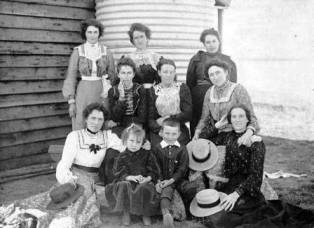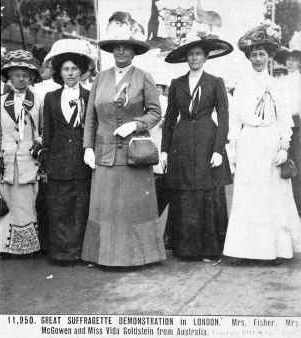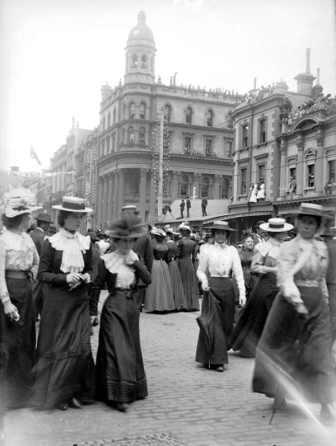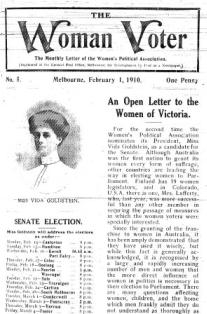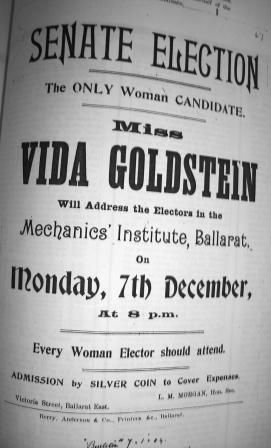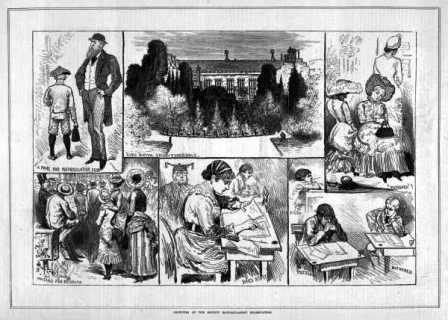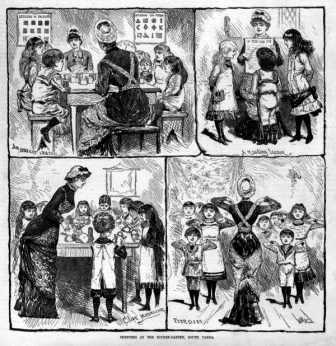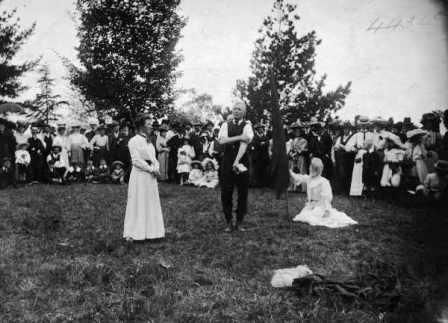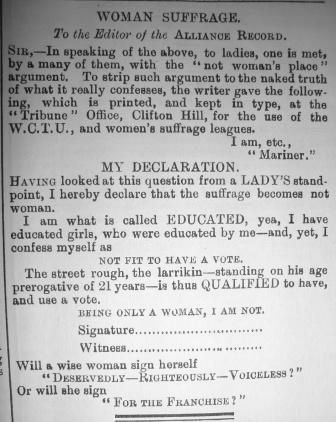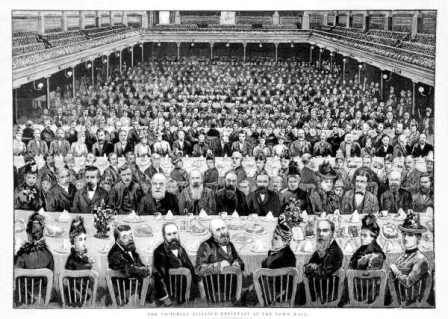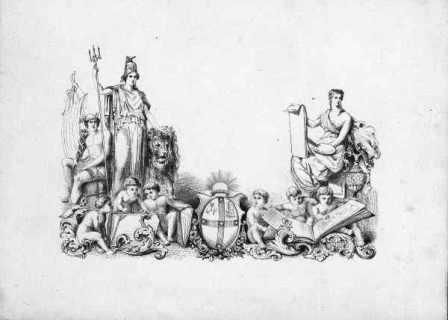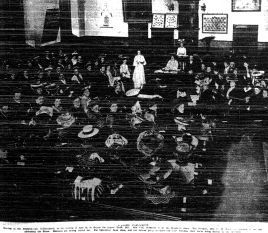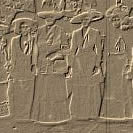 |
WOMEN WORKING TOGETHER |
THIS SITE CONTAINS
1 to 5 - Winning the vote
Chapter 1: The Vote or Bust 1788-1908
Chapter 2: Who Were the Suffragists?Chapter 3: 'United and Representative Agitation'
Chapter 4: Anti-Suffragists 1900-1910Chapter 5: Onwards to Success 1884-1908
6 to 10 - Social Justice and peace
Chapter 6: Moving into the Public World
Chapter 7: 1914-18 War - Pro Peace, Pro and Anti War
Chapter 8: Women's Work in WW1
Chapter 9: 1919-1935 - Surviving
Chapter 10: 1935-1945 Still Surviving
11 to 15 - Finding our voice as women
Chapter 11: 1945 and after - In Our Own Right
Chapter 12: 1970's Protesting - Working Together Again
Chapter 13: Finding Our Voice - Women's Liberation
Chapter 14: Working Collectively
Chapter 15: The 1970's & 80's Broader Women's Movement
16 to 20 - Our legacy our strength our struggle
Chapter 16: In Our Own Hands - Our Bodies
Chapter 17: Whose Right to Choose?- Our Selves
Chapter 18: Environment Matters
Chapter 19: 1990's When the Women's Movement is Quiet
Chapter 20: What a Legacy We Inherit!
Appendix 1: Papers and Interviews
Appendix 2: Songs from the Women's Movement
WOMEN FROM THE
WOMEN'S MOVEMENT
MENTIONED IN THIS WORK.
Abigail Adams
Ada Brougham
Adela Pankhurst
Adrian Howe
Agnes Murphy
Aileen Goldstein
Ailsa O'Connor
Alayne Park
Alex Butler
Alice B Toklas
Alice Henry
Alice Moon
Alice Suter
Alice Walker
Alice Weekes
Alina Holgate
Alisa Burns
Alison Alexander
Alison Dickie
Alison Richards
Alix McDonald
Alma Morton
Alma Thorpe
Andrea Coote
Annie McKenzie
Alva Geike
Amanda Bede
Amanda Biles
Amanda Graham
Amelia Ceranas
Amelia Lambrick
Amira Ingliss
Amy Castilla
Angelina Austin
Angelina Wonga
Ann Jackson
Anna Brennan
Anna Howie
Anna Morgan
Anna Pha
Anna Shaw
Anna Stewart
Anne Barker
Anne Carson
Anne Conlon
Anne Gowers
Anne Phelan
Anne Riseborough
Anne Stewart
Anne Summers
Annette Bear-Crawford
Annie Lister
Annie Lowe
Annie McKenzie
Anthea Hyslop
Antonie Stolle
Ariel Couchman
Audrey Oldfield
Barb Friday
Barbara Creed
Barbara Hall
Barbara Jones
Barbara Kerr
Barbara Marsh
Barbara Van Meurs
Barbara Wishart
Beatrice Faust
Bella Lavender
Belle McKenzie
Bertha Main
Beryl Carter
Bessie Harrison-Lee
Bessie Rainer Parkes
Bessie Rischbieth
Bette Olle
Betty Richmond
Bev Kingston
Bon Hull
Brettena Smyth
Brienne Callahan
Brigid McCaughey
Bronwyn Pike
Candy Broad
Carmel Shute
Carmen Callil
Carmen Lawrence
Carole Ford
Carole Wilson
Caroline Huidobro
Caroline Landale
Carolyn Allport
Carolyn Jay
Carolyn Worth
Carrie Chapman Catt
Carrie Reed
Caryl Friedman
Cath Mayes
Cath Stone
Catherine Anne Spence
Catherine Blackburn
Catherine McLennan
Cecilia John
Charlotte P Gilman (Stetson)
Cheris Kramarae
Cheryl Griffin
Chris Cathie
Chris Chapman
Chris Sitka
Chris Zsizsman
Christina Frankland
Christina Stead
Christine Haag
Churls Kramarae
Claire Berry
Clara Weekes
Clare Wright
Claudia Wright
Colleen Hartland
Constance Stone
Cynthis Carson
Dale Dowse
Dale Spender
Daphne Gollan
Deb Schnookal
Deborah Jordan
Deborah Wardley
Di Fruin
Di Otto
Di Surgey
Diane Crunden
Diane Kirby
Diane Sonnenberg
Dianne Edwards
Dianne Scott
Dianne Wells
Dimity Reed
Divna Devic
Dominica Whelan
Dora Coates
Doris Blackburn
Doris Challis
Doris McRae
Dorothy Turner
Dr Adrian Howe
Dr Aletta Jacobs
Dr Clara Stone
Dr Clare Isbister
Dr Constance Stone
Dr Helene Stocker
Dr Georgina Sweet
Dr Gwen Fong
Dr Janet Bacon
Dr Jocelynne Scutt
Dr Lyn McKenzie
Dr Marie Stopes
Dr Mary Glowrey
Dr Mary Stone
Dr Tamara McKean
Duggie Silins
Edie Turnevich
Edith Hedger
Edith Morgan
Edith Taylor
Edna Ryan
Eileen Capocchi
Eileen Kampukuta Brown
Eileen Unkari Crombie
Eleanor Dark
Eleanor Harding
Eleanor Hobbs
Eleanor M Moore
Elizabeth Cady Stanton
Elizabeth Coady
Elizabeth Hooke
Elizabeth Jackson
Elizabeth Ramsay-Laye
Elizabeth Reid
Elizabeth Rennick
Elizabeth Wallace
Elizabeth Wheelahan
Elizabeth Windshuttle
Ellen Julia Gould
Ellen Kleimaker
Ellen Ward
Elphinstone Dick
E McAllister
Emily Dobson
Emily Greene Balch
Emily Munyungka Austin
Emily Pankhurst
Emmaline Pankhurst
Emmy Evald
Ethel Barringer
Eugenie Davidson
Eva Eden
Eva Cox
Eva Figes
Eve Fesl
Eve Gray
Evelyn Gough
Evelyn Greig
Farley Kelly
Fiona Colin
Fiona Moorhead
Fleur Finney
Flo Kennedy
Flora Eldershaw
Florence Kelly
Frances Fraser
Frances Kissling
Fraulein Von Heymann
Freda Durham
Freda Gamble
Freda Steinberg
Frida Kahlo
Florence Miller
Gay Harris
Gayle Tierney
Gaylene Sneadon
Geraldine Briggs
Geraldine Robertson
Georgina McEnroe
Germaine Greer
Gertrude Bussey
Gertrude Stein
Gill Alecto
Gillian Waite
Gina Lewis
Gisela Kaplan
Glen Tomasetti
Greta Pearce
Gudren Drewsen
Gwendolen Swinburne
Harriet Taylor Mill
Hazel Donelly
Heather Jeffcoat
Heather Osland
Helen Anderson
Helen Caldicott
Helen Dow
Helen Durham
Helen Palmer
Helen Reddy
Helen Robertson
Helen Shardey
Helen Sexton
Hellen Cooke
Henrietta Dugdale
Henry Handel Richardson
Hetty Gilbert
Ilka Elkemann
Ina Higgins
Irina Dunn
Isabel McCorkindale
Isabella Goldstein
Isabella Martinis
Ivy Makinta Stewart
Jaala Pulford
Jacinta Allen
Jackie Fristacky
Jacqui Katona
Jan Armstrong Cohn
Jan Bassett
Jan Harper
Jan Mercer
Jan Testro
Jane Addams
Jane Alley
Jane Greig
Jane Mullett
Janet Bacon
Janet Bell
Janet Elefmiotis
Janet Lindsay Greig
Janet McCalman
Janet Michie
Janet Strong
Janey Stone
Janice Brownfoot
Janice Munt
Janine Bourke
Janne Reed
Jean Bedford
Jean Daley
Jean Henry
Jean McLean
Jean Melzer
Jean Sims
Jean Taylor
Jean Thompson
Jeanette Fenelon
Jeanette Powell
Jeanette Rankin
Jeni Thornley
Jennifer Clark
Jennifer Feeney
Jennifer Lee
Jennie Baines
Jenny Bacon
Jenny Barwell
Jenny Lee
Jenny Mikakos
Jenny Rimmer
Jenny Tatchell
Jesse Marlow
Jessie Ferguson
Jessie Henderson
Jessie Mcleod
Jessie Street
Jenny Pausaker
Jessie Street
Jessie Taylor
Jill Jolliffe
Jill Parkes
Jill Reichstein
Jill Roe
Jo Ellis
Jo MacLaine-Cross
Jo Phillips
Jo Wainer
Joan Coxsedge
Joan Curlewis
Joan E Basquil
Joan Goodwin
Joan Elkington
Joan King
Joan Kirner
Joan Rosanove
Joan Rowlands
Joanna Rea
Joanne Duncan
Jocelyne Clarke
Joe Dolce
Josephine Butler
Josie Lee
Joy Damousi
Joyce Barry
Joyce Johnson
Joyce Nicholson
Joyce Stevens
Jude Perera
Judi Willis
Judith Smart
Judy Cassar
Judy Morton
Judy Power
Judy Maddigan
Judy Small
Julia Church
Julia So So
Julianne Fogarty
Julie McCrossin
Julie Shiels
Juliette Mitchell
Kamla Bhasin
Karen Bird
Karen Gillespie
Karen Milgram
Karen Overington
Karen Silkwood
Karina Veal
Kate Darian-Smith
Kate Gilmore
Kate Jennings
Kate Miller
Kath Williams
Katherine Mansfield
Katherine Suzannah Prichard
Kathie Gleeson
Kathie Sarachild
Kathleen Fitzpatrick
Kathleen Maltzahn
Kathryn Sutherland
Kathy Gill
Kathy Wilson
Katrina Veal
Kay Daniels
Kaye Darveniza
Kay Hamilton
Kay Hargreaves
Kay Setches
Kaz Cooke
Keitha Carter
Kerry Blundell
Kerryn & Jenny
Kris Wilkinson
Lady Helen Munro-Ferguson
Lariane Fonseca
Laura Daniele
Laura Van Nooten
Laurie Bebbington
Lena McEwan
Lesbia Harford
Lesley Hewitt
Lesley Podesta
Lesley Stern
Lesley Vick
Leslie Cannold
Leslie Henderson
Lexie Methereall
Libby Brook
Libby Minifie
Lilian Alexander
Lilian Wald
Lily D'Ambrosia
Linda Aarchen
Linda Rubenstein
Linn Van Hek
Lisa Neville
Lisa Shuckroon
Liz Beattie
Liz Byrski
Liz Dowling
Liz Taylor
Lois Bryson
Lois Young
Lorri Manning
Louisa Lawson
Louisa Remedios
Louise Asher
Louise Walford
Lorna Scarles
Lucy Kowing Wilton
Lucy Paling
Lydia Becker
Lyla Barnard
Lyn Chambers
Lyn Hovey
Lyn McKenzie
Lynne Kosky
Mabel Drummond
Mandy Paul
Maree Gladwin
Margaret Bevege
Margaret Baskerville
Margaret Geddes
Margaret James
Margaret Mead
Margaret McKenzie
Margaret McLean
Margaret Roadknight
Margaret Thorp
Margaret Tims
Margaret Tucker
Margot Oliver
Maree Gould
Maria Mies
Marian Sawer
Marian Simms
Marian Vickers
Marie Kirk
Marie McInnes
Marie Rowan
Marion Harper
Marilyn Beaumont
Marilyn Hillgrave
Marilyn Lake
Marsha Thomson
Marylin Waring
Marilyn Wise
Marj Oke
Marjorie Barnard
Marjorie Barrett
Marjorie Waters
Mary Astell
Mary Bartlett
Mary Brodney
Mary Crooks
Mary Fullerton
Mary Gilbert
Mary Grant
Mary Killury
Mary Leigh
Mary Merkenich
Mary Murnane
Mary Owen
Mary Page Stone
Mary Rogers
Mary Salce
Mary Wolstonecraft
Mary Wooldridge
Matron Brown
Maxine Morand
May Brodney
May Langbridge
May Scheidt
May Smith
Megan McMurchy
Melanie Hall
Melinda Freyer
Melvina Ingram
Meredith Tax
Mesdames: Wallace; Baines;
Lavender; Webb; Singleton;
Morris; Gardiner; Reynolds,
Reid.
Mesdames Savage and Bella Lavender
Miles Franklin
Millicent Garrett Fawcett
Miss A Hume
Miss Anderson
Miss C H Thomson
Miss Cuthbertson
Miss D McRae
Miss E Goldstein
Miss E Hedger
Miss Effie Smart
Miss E Nesbit
Miss Geraldine Rede
Miss H Bridger
Miss H McGowan
Miss Harriet Newcomb
Miss Hilda Moody
Miss Jane Adams
Miss Janet Michie
Miss Jeanette Rankin
Miss Judd
Miss L Savage
Miss Lawler
Miss Lillian Locke
Miss Lillian Wald
Miss Mary Fullerton
Miss Miriam Geach
Miss Olive Gray
Miss R Smethurst
Miss Rapier
Miss Selina Cooper
Miss Simmons
Miss Wollen
Miss Stoddart
Miss V Bonner
Misses: Lewis; McMahon; Helsby;
Moody; Wise; Pascoe; Stewart;
Goodwin; Grant etc.
Misses: Mulcahy; Delaney; Townsend;
McGrath; Clements; Collins; Triffle; Cohen; McLean
Moira Rayner
Mollie Baine
Mollie Dyer
Molly Hadfield
Monika Wells
Morag Loh
Madame E Lorton Campbel
Mrs Anna B Howie
Mrs Bella Lavender Halloran
Mrs Beresford Jones
Mrs Bochinon
Mrs Brown
Mrs Catherine P Wallace
Mrs Chesterfield
Mrs Crawford
Mrs Crutchfield
Mrs D Irwin
Mrs D Monsbourgh
Mrs D Nankivell
Mrs Dwyer
Mrs E Hampton
Mrs E M Nimmo
Mrs E Pethridge
Mrs E Rothfield
Mrs Elliot
Mrs E W Nicholls
Mrs Emily Jackson
Mrs Evelyn Gough
Mrs F J Nicholls
Mrs F Williams
Mrs Florence Kelly
Mrs Fryer
Mrs Fisher
Mrs G Cameron
Mrs Goldstein (senior)
Mrs H A Dugdale
Mrs Harrard
Mrs Harrison Lee
Mrs Jamieson
Mrs Janet Strong
Mrs Jessie Vasey
Mrs Joan Rosanove
Mrs Josephine Butler
Mrs Kelly
Mrs Langdale
Mrs Laura Howie
Mrs Lister Watson
Mrs Lowe
Mrs Lucy Paling
Mrs M Hartley
Mrs M B Wollaston
Mrs M Mayall
Mrs Mabel Drummond
Mrs Malcolm
Mrs Martin
Mrs Mary Baird
Mrs Maudsley
Mrs M McGowan
Mrs Moody
Mrs Moore
Mrs Nance Wills
Mrs Naylor
Mrs O'Dowd
Mrs P Eden
Mrs Press
Mrs Pymm
Mrs Renwick
Mrs Robertson
Mrs Rosanov
'Mum' Shirl
Mrs Singleton
Mrs Smythe
Mrs Steele
Mrs Strong
Mrs Warren Kerr
Mrs Z Lees
Muriel Heagney
Myra Roper
Nan Chelsworth
Nancy Kessing
Nancye Smith
Narelle Dwyer
Nawal El Saadawi
Nettie Palmer
Nicole Steinke
Nina Bondarenke
Norma Grieve
Olive Gray
Olive Schreiner
Onnie Wilson
Pam Brewster
Pam Roberts
Pamela Branas
Pamela Curr
Pat Freeman
Pat Gowland
Pat Martin
Patricia Filar
Patsy Adam-Smith
Paula Trechler
Pauline Kennedy
Pauline Pickford
Peggy Cullinan
Penny Cooke
Penny Farrer
Penny Ryan
Peta Tait
Petra Munro
Philippa Hawker
Ponch Hawkes
Prof. Jo Wainer
Prof. Margaret Thornton
Rachel Avery
Rachel Hesley
Rae Walker
Raelene Frances
Ramona Koval
Rebecca West
Renate Howe
Renate Klein
Renee Miller
Renee Romeril
Rhoda Bell
Rigmor Berg
Rivka Pile
Roberta Meilleur
Robin Morgan
Robin Royce
Robyn Archer
Robyn Martin
Robyn Rowland
Romawati Senaga
Ros Bowden
Rose Scott
Rosemarie Gillespie
Rosemary Brown
Rosie Ferber
Ruby Rich
Ruby Tuesday
Ruth Bermann
Ruth Crow
Ruth Ford
Ruth Schnookal
Sabine Fernheicher
Sadie Kirsner
Sally Mendes
Sally Wilkins
Sandra Bloodworth
Sandra Onus
Senator Olive Zakharov
Sharon Jones
Sheila Bayard
Sheila Ricci
Sheila Wynn
Shirley Andrews
Shirley Swain
Sister Gladys Sumner
Sister Blake
Sister Brown
Sister Hannah
Sophie Slater
Stephanie Moore
Sue Jackson
Sue Mountford
Sue Pennicuik
Sue Reid
Sue Russell
Susan Anthony
Susan Hawthorne
Susie Grezik
Susy Potter
Suzane Fabian
Sylvia Azzopardi
Sylvia Plath
Sylvie Leber
Sylvie Shaw
Tammy Lobato
Tanya McIntyre
Teresa Magna
Terri Jackson
Terry Carney
Tess Lee-Ack
Tess Maloney
Thelma Fry
Thelma Lees
Thelma Prior
Thelma Solomon
Therese Radic
Theresa Lynch
Tjunmutja Myra Watson
Tjuta Ivy Makinti Stewart
Tracey Gurd
Tricia Caswell
Tricia Szirom
Trish Crick
Trudy Wise
Una Stannard
Val Ogden
Val Osborne
Vandana Shiva
Verity Bergmann
Vweronica Shwarz
Vida Goldstein
Virginia Geddes
Virginia Woolf
Vivien Brophy
Vivienne Binns
Wendy Lovell
Wendy Lowenstein
Wendy Poussard
Win Graham
Winsome McCaughey
Yolana Sutherland
Yosano Akiko
Yvonne Margarula
Yvonne Smith
Zara Wildenaur
Zelda D'Aprano
Zoe PhillipsThis work is copyright.
Please acknowledge the source/sources of anything you use.Every effort has been made to trace the people used on this site. Please contact us if you have any questions or concerns about our use of material.
Website advice:
Jean McConnachie
Editorial advice:
Barbara Hall, also Apsara Sabaratnam, Jean McConnachie, Irene Stavrakakis, Margaret Allison, Ramona Audrey, Waratah Rose Gillespie
Legal advice:
Matthew Nicholls
The forthcoming book is funded by Women's Web members and associates: Barbara Hall, Geraldine Robertson, Mary Crooks, Zelda D'Aprano
If you would like to contribute, please contact us.
CHAPTER 3 - 'United and Representative Agitation'
Should women enter parliament? Of course. Why not?
Vida Goldstein
Women in front of watertank Museum Victoria PA005253
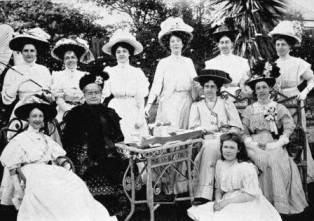
Women at afternoon tea Museum Victoria PA003479
In this chapter is listed some of the methods the suffragists used to win the vote ...THE CAMPAIGN How did they do it? Their methods were many and diverse |
9...THEY DID THEIR HOMEWORK Also 18..THEY PERSISTED |
They met in drawing rooms. They met in kitchens. They met at church. They met at the shops and at work. They took to the streets. They networked and agitated and organised and attended conferences. They gave lectures - city, country and overseas. Nothing could stop them.
Vida Goldstein: 'When I first took my stand on the street corner, with my bundle of papers under my arm, I felt numbed mentally and physically. Self consciousness was uppermost. The first thing that roused me was my own white scared face looking hard at me from a convenient advertisement mirror. Then I began to realize what I was really doing.
The people streamed by, some amazed, some amused, others contemptuous. For a long time nobody deigned to even approach me. Then a gruff, bighearted man, muffled in a big overcoat, stopped in front of me. He read my poster apron carefully and said 'Well, here you are, missus. I don't much hold with these suffragettes, but I like your pluck and I'll buy one' ... After a long wait, when I was beginning to lose heart again, a kindly woman stepped forward."I don't know what this is about but I do love enthusiasm"' she remarked as she tucked a paper into her market basket ... An experience like this broadens one's sympathies in every way. Only now do I realize how some of these poor people, who stand for hours selling wares, suffer. I was warmly clad, but I felt the cold intensely.' Woman Voter 1912
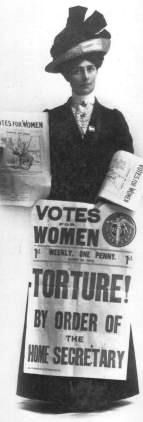
Vida Goldstein selling the WSPU paper Votes for Women
Melbourne Herald: For the Cause, Miss Goldstein Sells Papers
2...THEY PUBLISHED Magazines, journals, letters-to-the-editor, books, etc. They published here and overseas, for each other and for the public.
Joan Curlewis: 'In 1900 Vida started the Women's Sphere, designed to help the campaign but dealing with such topics as prostitution, equal pay, how women can succeed in business. The indignation of women who felt they had no say in the laws that governed them is expressed in this little poem published in the Sphere:
"Did we seek to be forbidden from all trades that pay? / Did we claim lower wages for a man's full work day? / Did we petition for the laws wherein our shame is shown? / That not a woman's child - or her body - is her own?" 200 Women in the House State Library of Victoria
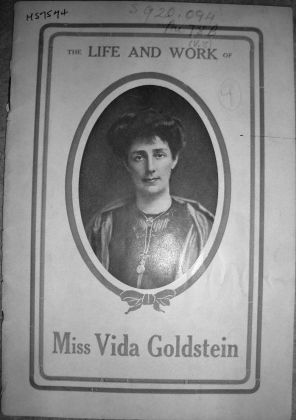
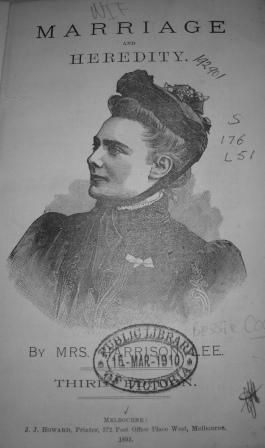
State Library of Victoria
These quotes are also from The Alliance:
Mrs Fryer: 'I have studied the question of women's franchise, and I have been puzzled to know, why it should be called 'Women's Rights' and how it is you men come to have that right ... ' Sep 5 1891
Mrs Josephine Butler:' The drunkard may vote ... the gambler may vote, the larrikin may vote, the land jobber may vote, the libertine may vote. We may have a corrupt Parliament, an Assembly of idle talkers
... Fellow women, ARE YOU ASLEEP? Wake up to life and duty.'
Joan Curlewis: 'Three hundred women invade Parliament House!' screamed the headlines. ... The year was 1898 and these women were after the vote.... In the press and pulpit the suffragists were ridiculed, scoffed at and charged with immorality (even though the Women's Christian Temperence Union took a leading part in the suffrage campaign.' Joan Curlewis Women's Lib in 1898 SLV MS11379
Audrey Oldfield: '... Queen's Hall in the parliamentary building. One member of (Legislative) Council accosted two of the younger members of the deputation with the following indecent remark which should have followed by his being consigned to the lock-up: 'You girls don't want votes - you want something else'. p 137 Woman Suffrage in Australia Audrey Oldfield Cambridge University Press 1992
Leslie Henderson: 'Sometimes the suffragists successfully lobbied Parliament. The 1906 Children's Court Act passed, with "the iniquitous clause rendering it possible to imprison a child seven years of age defeated solely through Miss Goldstein's efforts". Goldstein Papers State Library of Victoria
Vida Goldstein: 'Through not having women in Parliament energy and valuable time have to be spent on the often Herculean task of educating members up to the point of seeing the injustices in certain measures affecting women, eg the Federal Public Service Act. It bristled with discrepancies in pay for men and women doing exactly the same work. To get the principle of equal pay embodied in the bill, some of us had to spend days at the House lobbying members - always hateful work - showing them the many injustices in the bill from the women's point of view, and trying to get them to see them as we saw them. We had to tramp around getting petitions signed and write to the press.
Had there been women in the House there would have been no need for such tactics because the injustices were so obvious they only had to be pointed out and most members promised to get them removed. Another example was the Naturalization Bill which completely merged the individuality of a married woman with that of her husband.' (Years later Vida told me within a year or so of passing of the Public Service Act the equal pay clause was quietly removed from it with hardly a protest from women - Leslie M Henderson) LIFE AND WORK Leslie Henderson, State Library of Victoria
Demonstration (Mafeking?) State Library of Victoria mp011102
5...THEY RAN SOCIAL & POLITICAL CAMPAIGNS
SOCIAL - The Queen Victoria Hospital Appeal -
Janice N Brownfoot:'The Queen Victoria Hospital was needed "to give suffering poor women the chance of treatment by their own sex in the presence of women only". Established in 1896 as the Victoria Hospital for Women and Children as a clinic in a local church hall, The Queen Victoria Hospital was one of three hospitals in the world founded, managed and staffed by women, 'For Women, By Women', for the benefit of poor women uncomfortable with male doctors. There were eleven female founding doctors led by Dr Constance Stone.The Shilling Fund - 'This is the largest endeavour which has yet been made by Victorian women, combining women of all parties and classes in one united effort.' By April 1897 there were approximately 180 secretaries collecting all over Victoria. The individual contribution was deliberately restricted to one shilling to allow all women to contribute ... Money poured in and the Queen Victoria Hospital opened officially in the Old Governesses' Institute in June 1899.' p 43 Janice N Brownfoot Women's Organisations & the Woman Movement in Victoria SLV 1968
The hospital was funded by an appeal coinciding with Queen Victoria's Diamond Jubilee. After three years, there were enough funds to move into separate premises, the old Governess Institute in Mint Lane. Known as the Queen Victoria Hospital for Women and Children, the name changed to the Queen Victoria Memorial Hospital when the Queen died in 1901.' http://www.womenaustralia.info/biogs/AWE0049b.htm
POLITICAL - Nominating for Parliament -
Woman Voter December 1909: 'At a special meeting of the (Women's Political Association) WPA held on November 12 it was unanimously decided to nominate Miss Goldstein for one of the three vacancies in the Senate at the forthcoming elections. Miss Goldstein has accepted nomination:
- BECAUSE even the men most sympathetic to women's interests cannot understand them as a woman can.
- BECAUSE the WPA will make a Federal Equal Marriage and Divorce law and Equal Opportunities for Women in the Public Service the test questions for candidates, and it is desirable to have a woman candidate explain these measures and the need for them.
- BECAUSE it is desirable that Politics, which are the Reflex of National Life, should reflect the opinions of women as well as those of men.
- BECAUSE the non-party attitude towards national legislation is entitled to representation. Party adherents, Conservative, Liberal and Labour, have thirty six representatives in the Senate; Non party adherents are entitled to at least one voice in National Affairs.
- BECAUSE Finland, where women were enfranchised in 1906, has nineteen women members of Parliament, and Norway, which granted votes to women as late as 1907, is running three candidates for Parliament. Australia, which led the world in granting National Suffrage to women, should not lag behind European countries in recognising the claims of women to direct Parliamentary representation.' University of Melbourne
University of Melbourne archivesThe associations they formed were largely independent. Vida Goldstein promoted organisations that are 'not by means owned and controlled by men', and most seemed to fit this category. The exceptions were when they wanted to collaborate more closely with men.
In Getting Equal, Marilyn Lake said that during the 1880's and 1890's organisations calling for the granting of political rights multiplied. (p42) There were 95 women's organisations from around Australia represented at just one conference. The United Council of Woman Suffrage was formed in 1894 out of groups that had the political enfranchisement of women as their main object. At one stage it included:
The Australian Women's Sphere: 'Victorian Women's Franchise League; Brunswick Women's Franchise League; Women's Christian Temperance Union; Victorian Lady Teachers' Association; Central Methodist Mission; Women's Political and Social Crusade; Trades Hall Council; Victorian Vigilance Society; Bendigo Women's Franchise League; Castlemaine Women's Franchise League; Victorian Alliance; Australian Church Social Improvement Society; Horsham Women's Franchise League; Ararat Women's Franchise League; Women's Land Reform League; Prahran Women's Progressive League; St Kilda Women's Progressive League; South Melbourne Women's Progressive League; Richmond Women's Progressive League; Metropolitan Women's Progressive League; Essendon Women's Progressive League; Collingwood Women's Progressive League; Ballarat Women's Progressive League; Kew Women's Progressive League; Malvern Women's Progressive League; Canterbury Women's Progressive League; North and West Women's Progressive League; Footscray Women's Progressive League; Hawthorn Women's Progressive League.' State Library of Victoria LTM49 1344
Alice Henry: 'Miss Goldstein was appointed organising Secretary, and Miss Ina Higgins was honorary secretary. The Council directed the policy, published literature, circularised members of Parliament, and candidates for seats, held meetings public and private, and pursued a house-to-house canvass in every district that could be reached.' Marching Towards Citizenship in the Centenary Gift Book ed Frances Fraser and Nettie Palmer, pub The Women's Centenary Council Robertson & Mullens Ltd Melbourne 1934
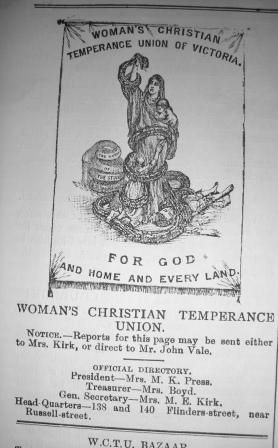
7...THEY HELD AND ADDRESSED MEETINGS
Isabel McCorkindale, editor: 'In order to enlist the help of the public in the task of obtaining the franchise for women, a public meeting was called at the Headquarters of the Union (WCTU) in April, 1894, and the Women's Franchise League was organised.' Pioneer Pathways p.25
Audrey Oldfield: 'Suffragist support for the 1899 Woman Suffrage Bill included "a monster demonstration of" approximately one thousand people at the Melbourne Town Hall, and large regional meetings. The imperturbable and tenacious Annie Lowe parried objectors at the Town Hall and Goldstein had her first bloodletting before an audience at Prahran'
'In 1902 ... a large meeting was held at the Melbourne Town Hall to celebrate the granting of the Commonwealth vote to all Australian women. Alfred Deakin, who had moved from the Victorian Parliament to become Acting Prime Minister of the new Commonwealth, was chief speaker. Annie Lowe, Catherine Anne Spence (who was in town from South Australia) and Mrs Press from the WCTU followed him. The meeting turned into a demand for the Victorian Legislative Council to capitulate when next a woman suffrage bill came before it. The veteran Annie Lowe was greeted with loud cheers when she moved:
"That this meeting expresses its gratification that the Commonwealth Parliament has affirmed the principle of woman suffrage in the passage of the Uniform Franchise Bill, and naturally concludes that the Legislative Council will now no longer withhold the State franchise from the women of Victoria". p 147 p 150 Woman Suffrage in Australia Audrey Oldfield CUP 1992
Public speaking was important to them -
Vida Goldstein: 'I accepted nomination (for Federal Parliament - women couldn't stand for State Parliament until 1923) because I saw what a splendid educational value the campaign would have. I know I would attract much larger audiences as a candidate than if I were advertised to give a lecture on woman's part in the federal elections, or some such subject. I believed that people would come to my meetings out of curiosity to see the wild woman who sought to enter parliament. They came, they saw, I conquered, that is, my arguments did, for no fair-minded person can hold out for five minutes against arguments for women's suffrage unless they seek to deny the right of self-government, and in these days of storm and stress one has no time to argue with such people ... I thoroughly enjoyed my campaign.' Review of Reviews Jan 1909
'Every woman of every political party should endeavour to secure the return of the woman candidate, as All the Men in Parliament cannot represent One Woman as adequately as One Woman can represent All Women'. State Library of Victoria
8...THEY HELD AND ATTENDED CONFERENCES AND CONGRESSES
Alice Henry: 'Australian women were represented internationally in 1902 at the Conference of the newly formed International Suffrage Alliance, where Miss Vida Goldstein was the delegate for both Australia and New Zealand.' See Appendix 1 for the Declaration of Principles that came from this conference Marching Towards Citizenship in the Centenary Gift Book ed Frances Fraser and Nettie Palmer, pub The Women's Centenary Council Robertson & Mullens Ltd Melbourne 1934
Marilyn Lake: 'It seems we did not send delegates, but after most Australian (not Aboriginal) women had won the vote in Federal Parliament, the 1906 Copenhagen Conference was informed about: "the activities of enfranchised women in Australia. What is it they vote for? ... the questions they take up, the measures they get passed? Well, they take first Local Option or some measure for minimising the drink devil, then children's courts, the care of neglected and feeble minded children, a more scientific method of treating habitual criminals, the closing of drink bars on election days and, regards legislation for women specially, equal divorce laws, the raising of the age of consent and the Testator's Maintenance Act (preventing a husband from willing away his property from his wife and family)." p.67 Getting Equal The History of Australian Feminism Marilyn Lake Allen & Unwin 1999
The temperance newspaper THE ALLIANCE had a section from the Women's Christian Temperance Union, edited by Mrs Harrison Lee for many years. This is part of an extract from July 11, 1891 quoting famous men who supported women's suffrage:
'PLATO - In the administration of a State, neither a woman as a woman or a man as a man has any special functions, but the gifts are equally diffused in both sexes.
ABRAHAM LINCOLN - I go for all sharing the privileges of government who assist in bearing its burdens, by no means excluding women.
HENRY WADSWORTH LONGFELLOW - Women's suffrage is undoubtedly coming and I for one expect a great deal from it.' etc.
Matriculation 1884 State Library of VictoriaHenrietta Dugdale: ''Telko', Riversdale Road Camberwell Victoria
'To "Working Man", You did not think women were such delicate creatures? You have our sympathy. It is hard indeed to think that a woman who leads her husband to believe that she is strong enough to drop a card into the ballot box should break down when only required to walk six miles down a mountain and carry back a week's supply of groceries and then run down into a wet paddock and pull grass for a hungry cow before taking her bonnet off. We agree with you that it is a most aggravating proceeding on her part to get sick after thirty years patient wifely service. We have read of parallel cases in other countries, but did not expect to find womanly unreasonableness so near our door.' Henrietta Dugdale between 1889-95 The First Voice of Aust. Feminism: Excerpts from Louisa Lawson's THE DAWNHansard: 'The West Gippsland Gazette reported on the 1st December 1903 that 'A favourite (anti suffrage) argument was that the woman's sphere was in the home'. They quoted "Miss Goldstein" saying that: "the fact was not denied. Home was the chief sphere of woman. It was also the sphere of man, and one which he too often neglected".
Joan Curlewis: 'Legend has it that at a meeting in a hall in Toorak, an elegantly dressed man asked haughtily, "Miss Goldstein, wouldn't you like to be a man?" With honeyed sweetness Vida parried "Wouldn't you?" A man once shouted an interjection, "Are you in favour of a tax on bachelors?" Said Vida "I favour nothing that might induce some men to get married." 200 Women in the House State Library of Victoria
To America and Back - A Lecture by Vida Goldstein 1902: 'Most of us, I believe, regard America as the most democratic and advanced country politically in the world. It is nothing of the kind. It is conservative as a country can well be. A democratic form of government does not necessarily mean that the people rule. The people of England with a monarchical form of government enjoy more real political freedom than do the people of the great American Republic.' State Library of Victoria SLVTF 305.420994G57T
The Truth About the Suffragettes -
Woman Voter December 1909: 'Meeting November 29, 1909 - 'The meeting held at the Athenaeum when Miss Agnes Murphy and Miss Vida Goldstein told "The Truth about the Suffragettes" was a conspicuous success. The audience was surprisingly large, since the (Women's Political Association) WPA estimate that 75% of the people have had their minds so poisoned by cable lies and misrepresentation that they are not ashamed to say "We don't want to hear the truth about the Suffragettes." Many of those who came to the meeting came thinking that the actions of the Suffragettes "would take a lot of explanation" and they surrounded the speakers afterwards expressing the most cordial thanks for having their darkness lightened by the mass of facts put before them. Miss Murphy's testimony from personal acquaintance of the Militant Suffrage Movement, and personal observation of their methods, was most convincing. So much interest was aroused by the lectures that the WPA has been requested to hold other meetings at which they can be repeated.' University of Melbourne archivesWhen one action failed they did another. One example was when the age of consent was debated in Parliament -
Ellen Ward: 'The suffragists always had women in the gallery, but seldom left the whole question up to Parliament. When it was knocked back they pushed for sex education for girls in the schools - if they weren't going to be protected they must protect themselves!' Ellen Ward, Suffrage Conference, Melbourne University Dec 07
Kindergarten State Library of Victoria mp009265They looked outwards to communicate with people unlike themselves and they looked to communicate with, and contribute, to thenational and international suffrage movement.
Letter from Miles Franklin to her publisher:' G.P.O. Melbourne, 11 Jan. '04.
Dear Mr. Robertson, Miss Goldstein wants some one to take up in Sydney the agency of her paper "The Woman's Sphere". I was thinking perhaps it would be a good thing for Mrs. Henry Lawson. What do you think? Don't you consider she would be a plucky & persevering little canvasser? I have written you re the matter as I believe you have always been a friend & helper of the poor little woman. If you think it feasible - Mrs. Lawson being well enough or with leisure enough to do it, would you please find her address for me as soon as possible & Mrs. Goldstein would write to her on the matter.
I have heard never a word of the Lawsons since Oct. perhaps they may be otherwise employed for all I know but there will be no harm done anyhow. Don't mention my address for a week or so please as I don't want it to be generally known just yet.
Sincerely, Miles Franklin.' http://image.sl.nsw.gov.au/Ebind/mss314_31/a798/a798000.html
Australia was not the first country to have an active suffrage movement. It was, however the first country in the world where women won the vote and the right to stand for parliament. Later Vida attributed this to:
Vida Goldstein: '... getting the respect of the workers. It is they who feel the need for reform most, because it is they who suffer most in present social conditions - it is they who are prepared to fight for reform. You want the vote in order that you may help to better social and industrial conditions, but you won't do it without the help of the industrial section of the country. Of this I am convinced. That is how we got it in Australia.' 10/10/1902 letter to the United States after The International Woman Suffrage Conference 1902 from The Australian Women's Sphere P218 SLV
See Appendix 1 for full text of An Open Letter to the Women of the United States
Woman Suffrage in Australia: During 1907 the Women's Political Association ... forwarded the following letter to members of the Commonwealth and State Parliaments of Australia -
Women's Political Association: 'Melbourne, 12th April 1907, Dear Sir, As you are aware the women of England are now making a valiant effort to secure their enfranchisement. We Australian women who have had our right to political liberty granted by the National Parliament and by every State Parliament save one, have been appealed to by the International Woman Suffrage Alliance to help our less fortunate fellow women in other lands, where it is urged by those in authority that the enfranchisement of women means social and political disaster. We propose, therefore, to collect the testimonies of Commonwealth and State Ministers, as to the working of Woman Suffrage here, and to send them to the International Woman Suffrage Alliance. Will you be good enough to forward us your testimony? Thanking you in anticipation. I am, Yours faithfully, Vida Goldstein, President.' The Victorian Women's Trust www.vwt.org.auAudrey Oldfield: 'In the month when the bill was waiting to go to the Upper House, Goldstein wrote sixty one letters to members of Parliament on its behalf, and the women submitted 21,000 'declarations' which the Declaration Committee had been gathering since 1907. Councillor Thomas Harwood announced that he would present a a petition against the woman's vote, which he was sure would have 40,000 to 50,000 names. Three weeks later he produced 1207.' Vida Goldstein's diary cited in Woman Suffrage in Australia - A Gift or a Struggle Audrey Oldfiel
Resolution proposed and circulated by letter from the Victorian Women's Political Association, Melbourne, 1911: 'That we workers in the Women's Cause in the State of ... most earnestly ask the Irish Delegates to make use of all their influence to urge the Members of Parliament for Ireland to strain every nerve to get the Conciliation Bill for Women's Suffrage passed within this present session, we having now for ten years used the franchise in the Federal Commonwealth Elections and for over ... years in the State Parliamentary Elections and are fully assured that no one would ever dream of taking our franchise away.' Uphill All the Way - A Documentary History of Women in Australia Kay Daniels and Mary Murnane UQ Press 1980 p 273
Socialist picnic, 1906, Heidelberg State Library of Victoria cc00154114..THEY ENCOURAGED SUPPORTIVE MEN AND ORGANISATIONS
This was put in the Women's Christian Temperance Union section of Alliance Record (in spite of the commas). Support from men, both in 'Mariner' and The Victorian Alliance for 'woman suffrage' is evident here -
'To the Editor 15/6/84, Sir, In speaking of the above, to ladies, one is met, by many of them, with the 'not women's place' argument. To strip such argument to the naked truth of what it really confesses, the writer gave the following, which is printed, and kept in type, at the Tribune's Office, Clifton Hill, for the use of the WCTU, and women's suffrage leagues. I am, etc., 'Mariner' The Victorian Alliance will heartily support any effort of the sort.'
This is the sarcastic declaration -
'My Declaration: Having looked at this question from a LADY's standpoint, I hereby declare that the suffrage becomes not woman. I am what is called EDUCATED, yea, I have educated girls, who were educated by me - and, yet, I confess myself as NOT FIT TO HAVE A VOTE. The street rough, the larrikin - standing on his age prerogative of 21 years - is thus QUALIFIED to have, and use a vote. BEING ONLY A WOMAN, I AM NOT. Will a wise woman sign herself "DESERVEDLY-RIGHTEOUSLY-VOICELESS!" Or will she sign 'FOR THE FRANCHISE".
The Victorian Alliance for the Suppression of Liquor Trade clearly assumed support from suffragists, and Vida Goldstein, for example, though -
Vida Goldstein: 'There is always a close connection between anti-suffrage and the liquor traffic. In Victoria it is an open secret that at the bottom of the hostility to woman suffrage of many members of the legislature who are largely interested in breweries and hotels, is the deadly fear that when women get the vote prohibition will rule the land.' p.181 Woman Suffrage in Australia Audrey Oldfield Cambridge University Press 1992
The Victorian Alliance Melbourne Town Hall State Library of Victoria mp00574715..THEY CO-OPERATED WITH THE DOMINANT CULTURE
In 1902 Vida Goldstein was sent as a delegate to the International Woman Suffrage Conference in Washington.
Audrey Oldfield: 'She (also) carried a commission from the Victorian Government to inquire into methods of dealing with neglected children, one from the Criminology Society to study the penal system, and one from the Trades Hall Council to inquire into trade unions' p 149 Woman Suffrage in Australia Audrey Oldfield Cambridge University Press 1992
State Library of Victoria pi00450916..THEY ABSORBED DIFFERENCE WITHIN THEIR MOVEMENT
When differences appeared women sometimes avoided division by forming new groups. There was a problem with some older feminists promoting what others (mainly younger) saw as 'indelicate' material (preventatives). These were thought to promote 'licentious behaviour' in men.Brettena Smyth disagreed. A freethinker and agnostic, feminist and suffragist, she argued: 'Every woman should say so many and no more (Children) and when she will have them. Marriage should protect her freedom of choice, not make her a slave ... Parents have no right to bring children into the world unless they can give them a good constitution, and this is what mothers cannot give when they have them too often.' Double Time - Women in Victoria - 150 Years Marilyn Lake and Farley Kelly Penguin 1985
The women who supported contraception simply formed a new society - the Australian Women's Suffrage Society.
Vida placed the value of education above a woman's position on suffrage -
Vida Goldstein: 'The chief value of the suffrage at present is its educational value ... But I would sooner see women educated in views diametrically opposed to mine than not educated at all.' Review of Reviews Jan 1904
17..THEY EMBRACED ALTERNATIVE TACTICS - AND ENJOYED THEMSELVESLetter from Aileen Goldstein to Miles Franklin: 'Bourke Street, Melbourne 1904:
'The Women's Political Association has formed a Mock Parliament which is giving promise of being a tremendous success - we have had two sittings already and each has been splendidly attended. Vida is Speaker, Mrs Moore - Premier, Mrs Malcolm - Clerk of the House, Mrs Maudsley - Attorney General and myself, Postmaster General. The conservatives were originally in the majority - but the Democrats got into power as the Labour Party (being in the minority) followed their platform. When I introduce a Bill I will let you know how I got on. I will have to be well coached. Vida will write to you about your note to her... from Yours affectedly, Aileen Goldstein'
Ladies' Parliament The Australasian June 18 1904 State Library of VictoriaThere were 18 suffrage bills presented to the Victorian Parliament from 1889 to 1908, 'a hardy annual', according to Vida Goldstein. It was a long campaign. Many agitated when they were young and persisted for decades - forty nine years of activism in Henrietta Dugdale's case.
They persisted against all odds, arguing -
Mrs McLean, of the Victorian WCTU, 1891: '... and what of the many thousands who have no husbands and many others whose husbands are unfit to represent them?'
Annie Lowe, speaking at the Melbourne Town Hall in 1896: 'I say that not the most chivalrous deference or the most constant attention from man to woman should usurp the place of truth and justice.'
A Victorian WCTU leaflet, 1895: 'We want to be more, not less womanly than we are, [but still] enjoy freedom of thought and action ...'One of the most powerful weapons used to discourage women from asking to participate in public life was ridicule. Louisa Lawson pinpointed the effect this could have on women's confidence when she wrote:
'This habitual belittlement leads women to mistrust themselves and to silently tolerate jests and innuendos against womankind'.
But the suffragists would not be silenced.
They had enemies, and we look at the anti-suffragist responses to these arguments and at the anti-suffragists in general, in the next chapter, 'Anti-Suffragists'.
